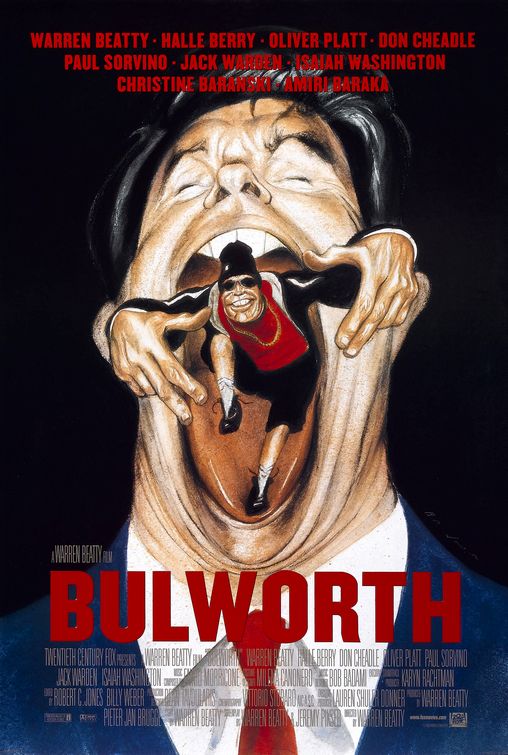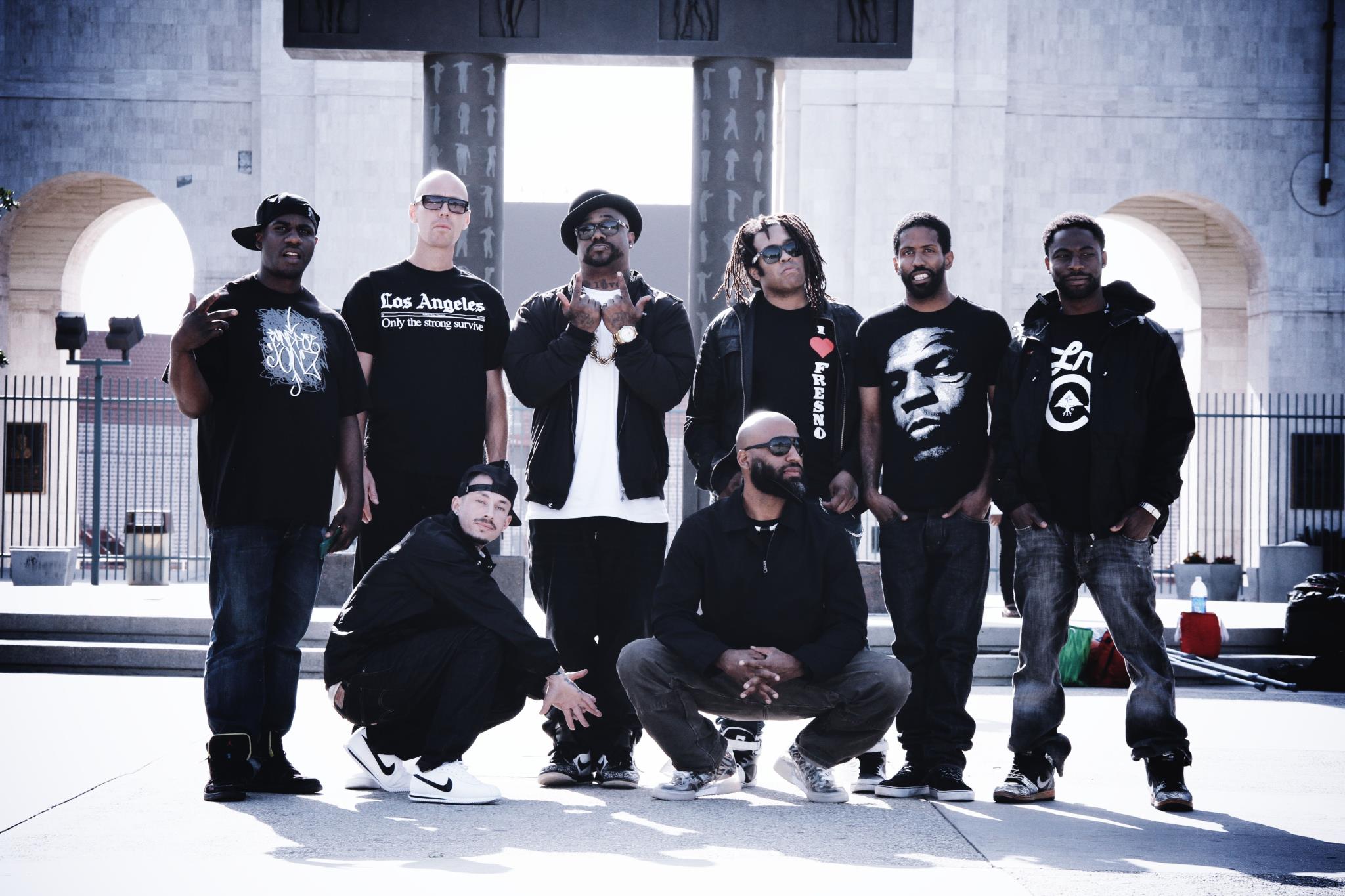Article: Hip Hop Cinema – Bulworth

Middle-aged white America loves watching goofy middle-aged white actors don baggy clothes, spin their hat backwards, and attempt to ‘rap’ with ‘hilarious’ results. Case in point: Warren Beatty’s Bulworth (1998). It’s a part of how
‘Hip Hop Cinema’ is a series of columns delving into the history of hip hop culture in cinema and television.
Middle-aged white America loves watching goofy middle-aged white actors don baggy clothes, spin their hat backwards, and attempt to ‘rap’ with ‘hilarious’ results. Case in point: Warren Beatty’s Bulworth (1998). It’s a part of how white middle-class culture engages with hip hop, but at what point does dorky ‘dad’ humour cross the line into minstrel show?
I suspect it’s something Beatty was aware of himself when he wrote, produced, directed, and starred in this satire about a disillusioned incumbent US politican, Jay Bulworth, who is pushed over the edge by nights of sleeplessness and thus orders a hit on himself to allow his daughter to cash in on his substantial life insurance. Suddenly terrified but freed by the knowledge of his impending death, Bulworth stops bothering with double-talk, and just says whatever truth comes to mind, without a care for who he offends (whether at a meeting of film producers or at a small black church). When he meets a trio of sassy black women (one of who is played by Halle Berry) who introduce him to black culture, Beatty becomes little bit obsessed with rapping at every opportunity, using it as the ideal method for ‘telling it like it is’.
The problem might be that Bulworth’s attempts to rap in of themselves have such an embarassing cadence and awkward delivery that they don’t actually sound anything like rap, and the situation doesn’t improve much over the course of the film. It’s not particularly funny (except perhaps the novelty of hearing one of the most talented and artistically motivated young liberal actors of the 1960s making a fool of himself), but what genuinely works is the content of his lyrics, which are incredibly scathing both of the state of america, but also of the role the politicians play in keeping the status quo while they’re in the pocket of the corporations.
Through his (many) rap sequences in the film, Bulworth touches on socialized medicine, the 99% (back when it was the 98%), political corruption, crime, war, racial inequality, self determination, the education system, the control of the media, the insurance lobby, the greed of the film industry, and drugs.
In these sequences, the truth is suprisingly effective, much more so because of its delivery, no doubt a reason why Beatty wrote the screenplay to channel his own fascination with rap. The film’s other problems with its portrayals of Black americans (unselfconscious loud-mouths, unmotivated drug dealers, or the unwittingly racist ‘magical negro’ trope), are balanced out by the content of the raps, even if the main ‘joke’ of the film is how ridiculous hip hop is made to seem when spoken by a middle-aged white male, and how effortlessly Jay Bulworth entwines himself in an African American community which he barely understands.
‘Bulworth’ at least attempts something interesting, and as long as you expect satire and not comedy, you’ll get some value from this very uneven film. Regardless, who can argue with a film where a US senator announces on national television, “We just gotta eliminate them: White people, black people, brown people, yellow people, get rid of ’em all. All we need is a voluntary, free spirited, open-ended program of procreative racial deconstruction. Everybody just gotta keep fuckin’ everybody til they’re all the same color.”
—
More Info / Soundtrack




